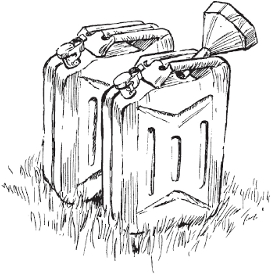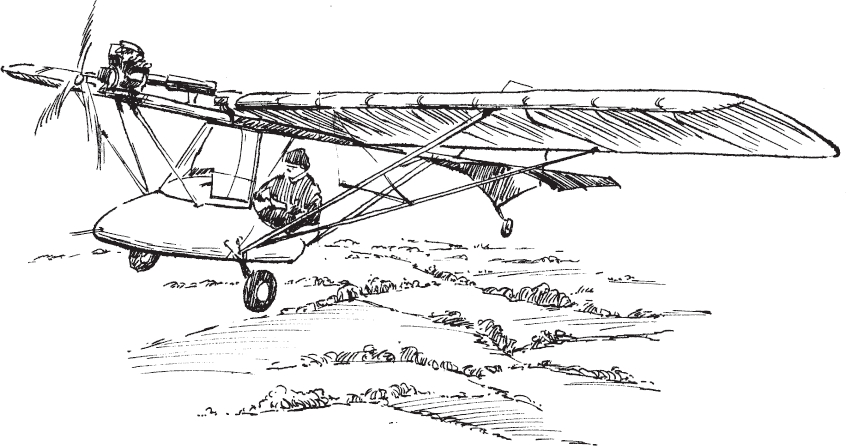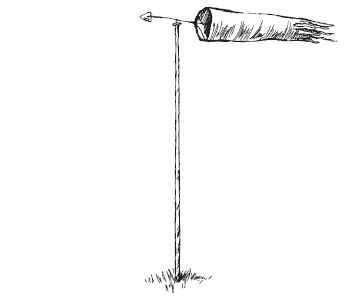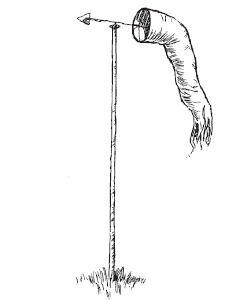
Полная версия:
Propellerhead


PROPELLERHEAD
Antony Woodward


To my mother and my father

‘Flying without feathers is not easy.’
Plautus, 254-184 BC
‘Remember, gentlemen, you cannot fuck and fly.’
Lord Trenchard, 1873-1956, First Marshal of the RAF
Table of Contents
Cover Page
Title Page
Epigraph
Author’s Note
Out of Africa
Normal for Norwich
Full Flying Member
The Cows Just Got Smaller
How to Land a Plane
Never Eat Shredded Wheat
Natural Born Tinkerers
Pilot-in-Command
A Ride for a Ride
Epaulette Country
The Round Britain
Ye Luckye Bastardes Club
Sabres of Paradise ‘Smoke Belch II’ (Beatless Mix)
Intentionally Blank
Glossary and Definitions.
Footnotes
Thanks
About the Author
Praise for Propellerhead
Copyright
About the Publisher
AUTHOR’S NOTE
Although this is a true story and the characters described are real, most names have been changed to protect privacy and—chiefly—pilots’ licences. All the events took place but details of chronology, in the interests of narrative continuity, have been shifted. Likewise, all dialogue was spoken, though not always at exactly the moments indicated. Anyone determined enough to work out where Barsham Green or Marston Mallet are will find circumstances at both places so altered as to be unrecognisable.

Out of Africa
Pointing at the joystick, Miles, my instructor (known as ‘Air’ Miles), said: ‘That’s the houses lever. Push it forward and the houses get bigger; pull it back and they get smaller.’
Letter to The Times, week ending 14th March 1998
‘Done any flying before?’
‘A few hours in a little plane—a Cessna.’
‘Heh-heh-heh. No, then.’
‘You think this is better?’
‘This is flying.’
‘What’s wrong with Cessnas?’
‘What’s wrong with Ford Sierras?’
I looked round the breezy cockpit, where we were wedged tightly alongside each other, Geoff in the right-hand seat, I in the left. There was a singular lack of dials or instrumentation compared to the cockpit of any other plane I had ever seen; just four gauges, in fact. I realised that I could identify all of them: compass, altimeter, airspeed indicator and engine rev counter. Between (and slightly in front of) us was a stick.
Our seating position must have been no more than six or eight inches off the ground. We were protected from the drizzle by the wing above and an enclosing fibreglass pod; our forward view was framed through a curved, scratched, murky cowling and windshield. At our sides, where the doors would have been—had there been doors—was nothing. Above and in front of us was a tiny engine, about the size of two shoe boxes placed on top of each other. The intercom in my helmet crackled.
‘Keep clear of this…’ Geoff wagged the stick from side to side to indicate its range of travel.
‘And the throttle.’ He indicated a lever down on my left which moved in tandem with a lever his side.
‘…and the rudders.’ He paddled two stirrups at my feet, which I hadn’t noticed. The engine screamed, we flicked round in a sharp U-turn and were off. As we surged across the grass, with surprising momentum, I gripped the stout tube of the A-frame on my side of the cockpit. I felt disconcertingly low: so low that I could almost, had I not been pinned into my seat by the safety harness, have run my fingers through the wet tussocks. Yet strangely, though I was ready to be nervous, I wasn’t. I didn’t even notice when we left the ground. Suddenly the ride seemed to have become smoother, the grass was falling away and we were climbing over the hedge and a clump of scrubby trees in the corner of the field.
The view was extraordinary. The open sides and huge windscreen meant unimpeded visibility to the front and sides. As we rose towards the low cloud, the ground began to become obscured by murky grey-white wisps of water vapour. Relief that I was still not feeling sick, or paralysed by vertigo, gave me a burst of confidence.
‘So why is this so much better? What can she do?’
‘Put your hand here.’ He placed my hand round the rubber grip on top of the stick. ‘Now put your feet on the rudder pedals. Now, basically…’ He pulled the stick sharply back. The seat beneath me suddenly hardened and pressed up against me. The g-force felt enormous and a charge ran through my loins as I found myself looking vertically into the murk.
‘Up.’
We hung there for a moment, then he pushed the stick hard forward. It was like going over Nemesis at Alton Towers. Except that rather than a childish 90° dive, we went through 180°. The nose pitched forward as if we were going to turn a complete somersault, until the view ahead through the windscreen was the ground directly beneath. A wood pigeon flapped languidly out of a large old oak tree. My stomach reversed up my oesophagus like a bubble in a spirit level, and I felt that not unpleasant shivering ache of going over a humpback bridge fast.
‘Down.’
He levelled us, and I began to take stock of my condition; I had no idea that sensational feelings like these—which I had presumed were the prerogative of Tornado or Space Shuttle pilots alone—would be available in a toy plane like this. Geoff, however, was not finished. He brought the stick sharply over to the right, its full range of travel, until it pressed up against his thigh. The horizon spun round to vertical and my helmet crashed against his with an undignified clunk as I was thrown against him. I found myself staring across his body at the ground again. This time I studied the furrows of the ploughed field.
‘Right.’
Now he brought the stick hard over in the opposite direction, against my right thigh. The horizon spun again as the little machine rolled crazily over the other way. There was a creak as the harness took my twelve-and-a-half stone, suspending me over the void beneath. There was nothing between me and the plough. I imagined myself dropping into it, face-first, with a muddy squelch.
‘And left. Got it? Your turn’.
As he rolled us back to level, the little craft bucking and swivelling like a settling gyro, I wondered if I detected, through the static, a slightly defiant note in his voice. As if to say ‘That’s what she can do, Cessna man.’ I also wondered, not for the first time that soggy Saturday afternoon, whether this was really an experience I needed.

It was March 1987, and my reason for booking the trial microlight flight had nothing to do with fulfilling any boyhood dream to fly. My first word wasn’t ‘plane’. If, when little, I ran round with my arms out making nneeeeeeeooooowww noises, I certainly didn’t do it any more than other children. I never made paper darts or Airfix models. When people at school got those little single-cylinder model plane engines and spent endless hours flicking the plastic propeller round with their forefinger to coax them into a few seconds of ear-splitting and fuel-spitting life, I thought—well, I didn’t think anything. I never looked up if planes went over. I was once taken to an air show, but I don’t remember particularly enjoying it. I didn’t cut the RAF ads out of Sunday magazines (the ones which always turned out to be for navigators). As an adult airline passenger, I always listened to the safety lectures a good deal more carefully than I pretended, noting the positions of the emergency exits (or, preferably, sitting next to one—alleging that this was for leg-room reasons) and I always heaved an inner sigh of relief the second we touched down. And that, no doubt, is how my relationship with flying and planes would have remained—had Richard not returned from Africa with his pilot’s licence.
After university, where we met, Richard and I had moved to London together. From a shared basement flat in Fulham that seemed to serve as a sink for all the trampled cardboard, fruit peel and McDonald’s wrappers from the North End Road, Richard trained to become a bank manager while I tried to break into advertising as a copywriter. After our carefree student years, it was a penurious, confidence-sapping existence, a phase of our lives (later known as ‘The Depression Years’) that seemed grimly indefinite—until Richard finally broke the deadlock by accepting a year’s posting in Swaziland, Africa. It was when I joined him to go travelling, at the end of this period, that I discovered he had learnt to fly. Frankly, I was surprised by how much this news threw me. It made me look at him differently. Most red-blooded males want to be able to drive things—generally the more complicated, powerful or impressive-looking the thing, the better. (My own daydreams tended to centre round bulldozers, fire trucks and Formula One cars.) A plane, by any standards, rated as The Ultimate Driving Machine. So when Richard’s job delayed him for a few days, I promptly booked some lessons with his instructor myself.
The joys of being closeted in the suffocating cockpit of a little Cessna plane, hour by arduous hour, with Lindsay bawling ‘R-r-right R-r-r-rudder’ (she had a particular way of rolling her ‘r’s) repeatedly into my right ear, eluded me entirely. This feeling was compounded when, after fourteen lessons, she took me aside. In twenty-two years of instructing, she said, she had never come across a student with so little natural aptitude for flying. Here my brief career in aviation would have ended, had we not returned together to the cloud-knitted skies of Fulham—to discover the jaw-dropping effect that Richard’s new qualification had on women.
Here I should explain that my flatmate was not an obvious catch for womankind. Never less than thirteen stone, when he put on weight—as he frequently did—he inflated rapidly and evenly, as if by foot pump. From his broad, rounded physique shirts naturally untucked themselves and trousers sagged (the material collecting in little folds over his shoes)—making him resemble, my mother always said, an unmade bed. He had a loud voice, un-moderated by any kind of volume control. And his bluff, impatiently forthright manner had occasioned his employers—Barclays Bank—to mark his personal career file ‘task – rather than people – orientated’.
There was no single incident or moment; no gorgeous blonde Suzi or dark-eyed Tamsin on whom I had pinned my hopes, and whom I lost to Richard. It was just that when the subject of flying came up—and Richard ensured, unremittingly, that it did—the attention migrated to him. Suddenly he was no longer another nondescript, pimply 25-year-old on the pull. He had moved up several links in the food chain. The impression was that here was a man with something about him; who had proved his capabilities in a grown-up activity involving epic, worldly understanding of things like navigation and weather—something, moreover, with an exotic tinge of wealth and daring. In this impression he was helped by the timely network television premiere of Out of Africa: a film that a majority of young women seemed to regard as the ne plus ultra of romantic fantasy. For a time, the mere juxtaposition of the words ‘flying’ and ‘Africa’ was enough to induce a swooning, goggle-eyed state in twentysomething women, unthinkable today without MDMA-based dietary supplements. And as these women clamoured to be ‘taken up’, the inference was clear: here was a potentially workable system of sexual procurement.
Ultimately, it was this thought, as much as pure jealousy, which convinced me to give flying another try. As Richard needed to keep up his flying hours to retain his new status, he welcomed a flying companion. And while we could neither afford to fly proper planes, we had high hopes of the new craze of microlighting, whose more lurid and comical accidents were increasingly making the newspapers. Might not one of these make a more affordable sex aid? When the first machine that I enquired about turned out to be called a Thruster, fate seemed to have taken a hand. I booked a trial flight for the following Saturday.

Aware of Geoff’s sharp eyes on me, I gingerly dabbed the stick this way, then that. Not much seemed to happen. When it did it felt very imprecise: as if we were perpetually skidding or slipping. Also, without any reference points for speed and direction, it was hard to tell how fast (or slowly) we were going.
‘You’re climbing. Watch the nose.’
The nose seemed to me to be where it had been the whole flight, but to pacify Geoff I eased the stick slightly forward.
‘Now, you’re descending. Pull the stick back. No, not that much. Just keep her straight and level.’
‘Does the engine ever fail?’
‘Oh yes.’ I waited for further information, but none was forthcoming. In the interval I became more aware of the engine roaring and vibrating away up in front of us, and how far away the ground looked.
‘Often?’
‘Not often enough.’
I was beginning to get a fix on Geoff.
‘What happens then?’ As the question came out, I realised how foolish it was. Before I had a chance to rephrase it, he had cut the engine.
‘Like this, you mean? Let’s see, shall we?’
In fact he didn’t stop it completely. But he reduced it to such a lazy idling tick-over that it felt as if he had. Compared to the racket of a second before, it seemed like silence.
‘See? She glides just fine. All you do is pick yourself a field and down you go.’ We were losing height rapidly. ‘People with Cessnas…’—he had a way of saying the word which made it sound like having lice—‘People with Cessnas can fly their whole life without ever having an engine failure.’ It sounded like an indictment against the Board and Directors of the Cessna company. ‘Trouble is, when they do…’
He opened up the throttle and we began to climb again.
‘These days aircraft engines run forever,’ he went on. ‘Makes you take them for granted. Makes you lazy. Makes you assume it’ll never happen. But this—’ Here a tone of warm affection re-entered his voice. ‘This doesn’t have an aircraft engine. This has a two-stroke designed for a Snowmobile, not made to strain away at high revs all the time. You’re bound to get a failure now and again. Part of the fun. That’s what makes you a real pilot. Engine failures keep you on your toes. Never get them and you never expect them.’
‘What about the other kind of microlight? The flexwing kind?’
While waiting for our trial flight in the clubhouse, it had been explained to us that there were two different types of microlight. There was the more primitive weight-shift kind, known as ‘flexwings’, which were controlled by a rudimentary bar, and were basically hang-gliders with an engine. And there were the more sophisticated ‘three-axis’ or ‘fixed-wing’ machines, like the one I was in now, which had a fixed wing that made it look more or less like a normal aeroplane—albeit one that appeared in the pretty early pages of any history of flight. These fixed-wing, three-axis machines were controlled ‘in three axes’ by the conventional aviation controls of a stick and rudder.
‘A trike?’ (How many names did these machines have, I wondered.) ‘All right. If you like that kind of thing. Easy to fly. Bit boring. Most people prefer it.’
‘You think this is better?’
‘This needs something you don’t need to fly a trike. Or a Cessna.’
‘What’s that?’
‘Skill.’
‘Ah. Ha-ha-ha.’
‘It’s true. The Thruster is a tail-wheel aeroplane, like the Spitfire and the Lancaster and all the great planes. That means it’s much more difficult to land. Lot of people find it impossible. Don’t get it just right, and she’ll bounce. Anyone can pancake a plane with a trike undercarriage onto the ground, but only a few can learn to land a tail-dragger. If in doubt, I’d go for a trike.’
We were descending again. The A303 re-appeared beneath us and there, alongside it, was the airfield. With a hiss, a film of drizzle covered the windshield. As we came in to land, I grasped the A-frame with my left hand; we appeared to be about to fly straight into the ground. As the moment of impact approached, I braced myself, but the bump never came. By the time I realised we had landed, we were bowling along the grass towards the clubhouse where Richard was waiting for his turn.
As I sat in the clubhouse, sipping a cup of coffee, my cheeks were burning. I could only have been up for fifteen minutes, but my hangover had disappeared. There had been more flying sensations in fifteen minutes with him than in all my lessons in a Cessna in Africa. I looked around the room. There were several tables. At one, two men pored over an air chart surrounded by books, rulers, protractors and marker pens, periodically pushing buttons on a calculator and filling in boxes on a printed form. At others, people drank cups of tea or coffee, chatted or read magazines. Under a glass counter were text books, manuals, cassettes, log books, woven cap badges, rulers and objects which looked like circular slide rules for sale. Notices on pinboards covered every wall. ‘Think Noise Abatement’, said one. ‘Think Hedgerow, not Heathrow’, said another. ‘Beware Spinnning Propellers’ (here a Ralph Steadman drawing of someone having their head sawn off by a propeller). There were abstruse-looking meteorological charts, weather reports and maps of the local area with shadings and markings all over them, and similar-looking charts for the whole of the south of England. There were line-drawn maps on architects’ paper with shading all over them marked ‘Airspace Classifications’ and identical maps with different shading marked ‘Areas of Intense Aerial Activity’. There were pictures of microlights with headlines saying ‘The Safest Way to Make the Earth Move’. And, more exotically, a poster: ‘Imported by Plane? Drugs Kill’ and ‘Coast Watch: Have You Seen Anything Suspicious?’ There was an advertisement board with photographs of planes for sale, and other notices: ‘Alençon Trip’, ‘le Touquet Trip’, ‘Sherborne Farm Fly-in and BBQ’.
On one side, a man sat behind a counter next to a radio set. Periodically this burst into life with a blast of static and a stream of incomprehensible pilot-speak: ‘Sierra zulu downwind zero eight.’ Mainly this was ignored, but sometimes the man would pick up the mouthpiece, press a button, and say crisply something like: ‘Sierra zulu wind one two zero fifteen repeat one two zero fifteen QFE one zero one two report finals.’ I faintly wished that I understood what he meant.
I finished my coffee and wandered up the field, booting clouds of moisture from the sodden clumps of grass. I wondered how difficult ‘difficult to land’ could be. (If we ever got a microlight, I had already decided that there was no way it was going to be a ‘flexwing’.) I wondered how Richard was getting on—given his fractious, hung-over condition of earlier in the day—in particular how he had received the information that flying a Cessna was like driving a Sierra. I could rely on the fact that he would have told Geoff he had his pilot’s licence.

‘Did you find that man as irritating as I did?’ said Richard cheerfully as we made our way back to the car. He still had flattened hair, red ears and white pressure marks from the crash helmet; his face was pink, his eyes were bright and his nose was running. As we headed into London, the weather began to clear—a routine development, I would learn, at the end of a flying day.
‘…Yes, not bad, not bad. Very different to a Cessna, of course. But not bad at all’, said Richard. ‘What’s it called again?’
‘A Thruster.’
‘Yes, at least it’s like a proper aircraft. Stick and rudder. Did you see those other things? They looked like kites.’
‘What about the landing? How difficult do you think that can be?’
‘Landing?’ said Richard. ‘Why should there be any problem with landing? Look at the people who do it.’ Richard’s spirits were completely restored and I noticed that I was in a better mood than I had been in for months.
It did not strike us until much later that Geoff was an excellent salesman.

Normal for Norwich
95% of the people who own light planes today can’t afford to own them.
A Gift of Wings, Richard Bach
A new Thruster cost £12,000. A private pilot’s licence to fly it required a minimum of twenty-five hours flying time (though we had been warned to allow a great deal more on account of the British weather) of which a large proportion might be ‘dual’ or with an instructor, charged at around £75 per hour. My bank balance stood at £542.62 overdrawn.
Microlighting, it transpired, fell into that select category of sports—alongside base-jumping, wing-walking, sky-diving, motorcycle racing, hang-gliding, free-climbing, sky-boarding—where insurance companies were not tempted by your business, even at a 99 per cent premium. If you had life policies, health insurance or endowment mortgages, all were invalid the moment you set foot in a microlight, or at least until you emerged unscathed. A consequence of this was that, because microlights could not be insured, they could not be hired. You could not, therefore, have a few lessons, acquire a licence, then rent a machine when you felt like flying (as with a Cessna). If you wished to maintain a licence, there was no alternative but to buy a machine. There was the option of buying second-hand, but as Richard said, with an activity of this kind it seemed to make sense to buy new. Thereafter, from the moment it arrived, it was racking up expense in running, maintenance and monthly hangarage charges at whichever airfield we ended up keeping it.
Richard—the bank manager—did the sums. Although we differed in the extent of instruction we required (Richard, having a PPL, only had to apply to the Civil Aviation Authority to adapt his licence), the dismal conclusion was the same. We needed£6,000 each now, plus, for me, another £2,000 for instruction and other expenses, spread over however long it took.
Despite what I might intimate to people unfamiliar with the advertising industry, I was still a junior copywriter. I worked for a tiny advertising ‘boutique’—one of the rash of 1980s start-ups—located above a Chinese restaurant in Chinatown. Richard earned slightly more but was only in the black himself because it was a condition of his employment. We were in no position to buy an aircraft. ‘Saying you haven’t got the money, is not a reason,’ said Richard. ‘It’s an excuse. It comes as no surprise to hear you’re trying to back out.’



